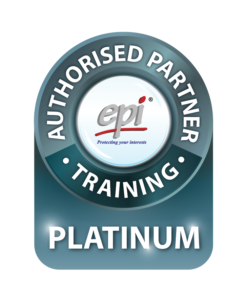The EPI CDCP - Certified Data Centre Professional is a 2-day course is designed to expose participants to the key components of the data centre.
EPI CDCP Data Center training will address how to setup and improve key aspects such as power, cooling, security, cabling, safety etc. to ensure a high-available data center. EPI CDCP Certification will also address key operations and maintenance aspects.
The EPI CDCP training is conducted in Dubai and is the first level in the EPI Design and Build training track under the EPI Data Centre Training Framework
BEST PRICE GUARANTEED!
The primary audience for the EPI CDCP Data Center Training is an IT, Facilities or Data Centre Operations professional working in and around the datacentre (representing both end-customers and/or service provider/facilitators) and having responsibility to achieve and improve hi-availability and manageability of the Data Centre, such as: Data centre managers, Operations / Floor / Facility managers, datacentre engineers, network/system engineers/data centre sales/consultants.
For Data Centre Audit in the UAE and Middle East (ANSI/TIA-942) contact us
There is no specific prerequisite for the EPI CDCP course. However, participants who already have at least one or two years’ experience in a data center or facilities environment may be best suited. Those with no experience just yet are most welcome to participate.
For Data Centre Audit in the UAE and Middle East (ANSI/TIA-942) contact us
After completion of the course the participant will be able to:
- Choose an optimum site for mission-critical data centre based on current and future needs
- Describe all components that are important for highavailability in a data centre and how to effectively setup the data centre
- Name and apply the various industry standards
- Describe the various technologies for UPS, fire suppression, cooling, monitoring systems, cabling standards, etc, and to select and apply them effectively to cost-efficiently enhance the high-availability of the data centre.
- Review the electrical distribution system to avoid costly downtime
- Enhance cooling capabilities and efficiency in the data center by using existing and new techniques and technologies for the increased cooling requirements of the future
- Design a highly reliable and scalable network architecture and learn how to ensure installers apply proper testing techniques
- Describe (high-level) data centre operational considerations supporting mission-critical environments
- Setup effective data centre monitoring ensuring the right people get the right message
- Ensure proper security measures, both procedural and technical, are established to safeguard your company's valuable information in the data centre
For Data Centre Audit in the UAE and Middle East (ANSI/TIA-942) contact us
The Data Center, it’s Importance and Causes for Downtime
Data Center Standards and Best Practices
Data Center Location, Building and Construction
- Selecting appropriate sites and buildings and how to avoid pitfalls
- Various components of an effective data centre and supporting facilities setup
Raised Floor/Suspended Ceiling
- Uniform, concentrated and rolling load definitions
- Applicable standards
- Raised floor guidelines
- Signal Reference Grid, grounding of racks
- Disability act and regulations
- Suspended ceiling usage and requirement
Light
- Standards
- Light fixture types and placement
- Emergency lighting, Emergency Power Supply (EPS)
Power Infrastructure
- Power infrastructure layout from generation to rack level
- ATS and STS systems
- Redundancy levels and techniques
- Three-phase and single-phase usage
- Power distribution options within the computer room
- Power cabling versus bus bar trunking
- Bonding versus grounding
- Common Mode Noise and isolation transformers
- Distribution boards, form factors and IP-protection grades
- Power quality guidelines
- Real power versus apparent power
- How to size and calculate load in the data centre
- Generators
- Static and dynamic UPS systems, selection criteria, how they operate and energy efficiency option
- Battery types, correct selection and testing
- Thermo-graphics
Electro Magnetic Fields
- Electrical fields and magnetic fields definitions and units of measurements
- Sources of EMF
- Effects of EMF on human health and equipment
- (H)EMP
- Standards
- EMF shielding solutions
Equipment Racks
- Rack standards, properties and selection criteria
- Security considerations
- Power rail/strip options
Cooling Infrastructure
- Temperature and humidity recommendations
- Cooling measurement units and conversion rates
- Sensible and latent heat definitions
- Differences between comfort and precision cooling
- Overview of different air conditioner technologies
- Raised floor versus non-raised floor cooling
- Placement of air conditioner units and limitations to be observed
- Supplemental cooling options
- Cold aisle/hot aisle containment
Water Supply
- Importance of water supply and application areas
- Backup water supply techniques
Designing a Scalable Network Infrastructure
- The importance of a Structured Cabling System
- Planning considerations
- Copper and Fiber cable technology and standards
- ANSI/TIA-942 Cabling hierarchy and recommendations
- Testing and verification
- SAN storage cabling
- Network redundancy
- Building-to-building connectivity
- Network monitoring system requirements
Fire Protection
- Standards for fire suppression
- Detection systems
- Various total flooding fire suppression techniques and systems, their benefits and disadvantages
- Handheld extinguishers
- Signage and safety
- Regulatory requirements and best practices
Physical Security and Safety
- Physical security considerations
- Physical safety considerations
Auxiliary Systems
- Data center monitoring requirements
- EMS, BMS and DCIM
- Water leak detection systems
- Alarm notification
Operational Considerations
- Service Level Management
- Organisation
- Safety
- Security
- Facilities maintenance
- Monitoring
- Governance
For Data Centre Audit in the UAE and Middle East (ANSI/TIA-942) contact us
The EPI CDCP Training is lectured by an EPI Certified Instructor using a combination of lectures and question-and-answer sessions to discuss participants’ specific needs and issues experienced in their own environment. Participants are able to tap into the trainer’s extensive experience to enable them to solve practical problems in their current environment, thus adding tremendous value.
EPI CDCP course available in the following delivery methods:
- VILT – Virtual Instructor Led Training (Online)
- ILT - Instructor Led Training (In-Person)
- TOD – Training On Demand (Self-Paced)
For Data Centre Audit in the UAE and Middle East (ANSI/TIA-942) contact us
Exam: Certified Data Centre Professional - EPI CDCP®
Attendees will take a 1-hour EPI CDCP exam. The exam is 40 questions, multiple-choice, closed-book. The passing mark is 27 out of 40.
For Data Centre Audit in the UAE and Middle East (ANSI/TIA-942) contact us
Attendees passing the exam will be awarded the internationally accredited and recognized 'Certified Data Centre Professional' (CDCP) certificate.
EPI CDCP is globally accredited by EXIN a fully independent exam and certification institute.
The CDCP certificate is valid for 3 years, after which recertification is required.
For Data Centre Audit in the UAE and Middle East (ANSI/TIA-942) contact us
The Data Centre Planning Tool - DCPT will help create a data centre career plan customised just for you, in just 3mins, or less!
Whether you are already working in the data centre industry or just starting out, this tool will create a career development plan for you, from where you are now to where you want to be in the future. It identifies the competences (skills and knowledge) you will need for your current job roles and also your future job roles.
You will be able to plan for your career and acquire the required competences and be prepared when an opportunity comes along. TRY NOW!



